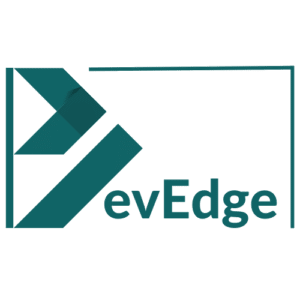DevEdge is a leading digital marketing agency that specialises in search engine optimisation (SEO). With years of experience in the industry, DevEdge has helped numerous businesses improve their online visibility and drive organic traffic to their websites. One of the most popular website platforms for SEO is WordPress, which offers a range of features and plugins that can enhance your website’s search engine rankings.
WordPress is a content management system (CMS) that allows users to easily create and manage websites. It is highly customizable and offers a wide range of themes and plugins that can be used to optimise your website for search engines. With its user-friendly interface and powerful SEO capabilities, WordPress has become the go-to platform for businesses looking to improve their online presence.
Key Takeaways
- DevEdge offers SEO services for WordPress websites
- Keyword research is crucial for effective SEO
- Optimising your WordPress website includes technical and content-related aspects
- High-quality content is key for better SEO results
- On-page SEO techniques and off-page strategies are both important for WordPress websites
Understanding the Importance of Keyword Research for SEO
Keyword research is the process of identifying the keywords and phrases that people are using to search for information related to your business or industry. It is an essential part of SEO as it helps you understand what your target audience is searching for and allows you to optimise your website accordingly.
Effective keyword research involves finding keywords that have high search volume and low competition. This means that there are a lot of people searching for those keywords, but not many websites are targeting them. By targeting these keywords, you can increase your chances of ranking higher in search engine results pages (SERPs) and driving more organic traffic to your website.
To conduct effective keyword research, you can use tools like Google Keyword Planner, SEMrush, or Moz Keyword Explorer. These tools provide valuable insights into search volume, competition, and related keywords. Additionally, it’s important to consider user intent when selecting keywords. Understanding what users are looking for when they search for a particular keyword will help you create content that meets their needs and improves your chances of ranking higher in SERPs.
Optimising Your WordPress Website for SEO
On-page SEO refers to the optimisation of individual web pages to improve their search engine rankings and drive organic traffic. It involves optimizing various elements on your website, such as meta tags, headings, URLs, and content.
To optimise your WordPress website for on-page SEO, start by optimizing your meta tags. Meta tags are HTML elements that provide information about a web page to search engines. The two most important meta tags are the title tag and the meta description. The title tag should include your target keyword and be concise and descriptive. The meta description should provide a brief summary of the page’s content and entice users to click on your website in search results.
Another important aspect of on-page SEO is optimizing your headings. Use H1 tags for your main heading and H2-H6 tags for subheadings. Include your target keyword in your headings to signal to search engines what your content is about.
URL structure is also important for on-page SEO. Make sure your URLs are descriptive and include your target keyword. Avoid using long, complex URLs with unnecessary characters or numbers.
Lastly, create high-quality, informative content that is optimized for search engines. Include your target keyword naturally throughout your content, but avoid keyword stuffing. Focus on providing value to your readers and answering their questions.
Creating High-Quality Content for Better SEO Results
High-quality content is crucial for SEO success. Search engines prioritize websites that provide valuable, relevant information to users. By creating high-quality content, you can improve your website’s search engine rankings and attract more organic traffic.
When creating content for SEO, it’s important to focus on relevance and user intent. Understand what your target audience is looking for and create content that meets their needs. Conduct thorough research on the topic you’re writing about and provide accurate, up-to-date information.
In addition to relevance, it’s important to optimise your content for search engines. This includes using relevant keywords naturally throughout your content, including in headings, subheadings, and meta tags. However, avoid keyword stuffing, as this can negatively impact your search engine rankings.
Another important aspect of high-quality content is readability. Use clear, concise language and break up your content into smaller paragraphs and sections. Use bullet points and subheadings to make your content easier to scan.
Lastly, make sure your content is visually appealing. Use images, videos, and infographics to enhance your content and make it more engaging for users.
Utilising On-Page SEO Techniques for WordPress
On-page SEO refers to the optimisation of individual web pages to improve their search engine rankings. It involves optimizing various elements on your website, such as meta tags, headings, URLs, and content.
To optimise your WordPress website for on-page SEO, start by optimising your meta tags. The title tag should include your target keyword and be concise and descriptive. The meta description should provide a brief summary of the page’s content and entice users to click on your website in search results.
Another important aspect of on-page SEO is optimising your headings. Use H1 tags for your main heading and H2-H6 tags for subheadings. Include your target keyword in your headings to signal to search engines what your content is about.
URL structure is also important for on-page SEO. Make sure your URLs are descriptive and include your target keyword. Avoid using long, complex URLs with unnecessary characters or numbers.
Lastly, create high-quality, informative content that is optimised for search engines. Include your target keyword naturally throughout your content, but avoid keyword stuffing. Focus on providing value to your readers and answering their questions.
Off-Page SEO Strategies for WordPress Websites

Off-page SEO refers to the optimisation of factors outside of your website that can influence its search engine rankings. This includes building high-quality backlinks, social media engagement, and online reputation management.
One of the most important off-page SEO strategies is building high-quality backlinks. Backlinks are links from other websites that point to your website. They are an important ranking factor for search engines, as they indicate that your website is trustworthy and authoritative.
To build high-quality backlinks for your WordPress website, start by creating valuable, shareable content. When you create content that provides value to users, other websites are more likely to link to it. Reach out to relevant websites and ask them to link to your content. You can also guest post on other websites and include a link back to your website in your author bio.
Social media engagement is another important off-page SEO strategy. Engage with your audience on social media platforms and share your content. When your content is shared and liked by others, it signals to search engines that your website is popular and authoritative.
Online reputation management is also crucial for off-page SEO. Monitor your online reputation and respond to any negative reviews or comments promptly and professionally. Encourage satisfied customers to leave positive reviews and testimonials on review websites.
Incorporating Social Media for Improved SEO
Social media can have a significant impact on your website’s search engine rankings. When your content is shared and liked by others on social media platforms, it signals to search engines that your website is popular and authoritative.
To incorporate social media into your SEO strategy, start by creating shareable content. Create content that provides value to users and encourages them to share it with their followers. Use social sharing buttons on your website to make it easy for users to share your content on social media platforms.
Engage with your audience on social media platforms by responding to comments and messages promptly. Encourage users to engage with your content by asking questions or running contests and giveaways.
Additionally, use social media platforms to promote your content and drive traffic to your website. Share links to your blog posts, articles, and other valuable content on social media platforms. Use relevant hashtags to increase the visibility of your content and attract more users.
The Role of Backlinks in SEO and How to Build Them
Backlinks are links from other websites that point to your website. They are an important ranking factor for search engines, as they indicate that your website is trustworthy and authoritative.
To build high-quality backlinks for your WordPress website, start by creating valuable, shareable content. When you create content that provides value to users, other websites are more likely to link to it. Reach out to relevant websites and ask them to link to your content. You can also guest post on other websites and include a link back to your website in your author bio.
Another effective way to build backlinks is through online directories and listings. Submit your website to relevant directories and listings in your industry. This can help improve your website’s visibility and attract more organic traffic.
Additionally, consider reaching out to influencers and bloggers in your industry. Offer to provide them with valuable content or collaborate on a project. When influencers and bloggers mention or link to your website, it can significantly improve your search engine rankings.
Measuring SEO Success with Analytics and Metrics
Measuring SEO success is crucial for understanding the effectiveness of your SEO efforts and making informed decisions about future strategies. There are several metrics you can track to measure SEO success.
One of the most important metrics is organic traffic. Organic traffic refers to the number of visitors that come to your website through organic search engine results. By tracking organic traffic, you can see if your SEO efforts are driving more visitors to your website.
Another important metric is keyword rankings. Track the rankings of your target keywords in search engine results pages (SERPs). If you see improvements in keyword rankings, it indicates that your SEO efforts are paying off.
Conversion rate is another important metric to track. Conversion rate refers to the percentage of visitors who take a desired action on your website, such as making a purchase or filling out a contact form. By tracking conversion rate, you can see if your SEO efforts are attracting high-quality traffic that is more likely to convert.
Lastly, track your website’s bounce rate. Bounce rate refers to the percentage of visitors who leave your website after viewing only one page. A high bounce rate can indicate that your website is not providing the information or user experience that visitors are looking for.
Staying Up-to-Date with the Latest SEO Trends and Best Practices with DevEdge
Staying up-to-date with the latest SEO trends and best practices is crucial for maintaining a competitive edge in the digital marketing industry. SEO is constantly evolving, and what worked yesterday may not work today.
DevEdge can help you stay informed and implement the latest SEO strategies. With their expertise in SEO and digital marketing, they can provide valuable insights and recommendations tailored to your business needs.
DevEdge offers a range of services, including keyword research, on-page and off-page optimisation, content creation, and analytics tracking. They stay up-to-date with the latest SEO trends and best practices to ensure that their clients’ websites are optimized for search engines and driving organic traffic.
By partnering with DevEdge, you can focus on running your business while they handle the technical aspects of SEO. They will monitor your website’s performance, track important metrics, and make data-driven decisions to improve your search engine rankings and drive more organic traffic to your website.
In conclusion, DevEdge is a leading digital marketing agency that specialises in SEO. They have years of experience in the industry and can help businesses improve their online visibility and drive organic traffic to their websites. WordPress is a popular website platform for SEO, offering a range of features and plugins that can enhance your website’s search engine rankings. By understanding the importance of keyword research, optimising your WordPress website for SEO, creating high-quality content, utilizing on-page and off-page SEO techniques, incorporating social media, building backlinks, measuring SEO success, and staying up-to-date with the latest SEO trends and best practices with DevEdge, you can improve your website’s search engine rankings and drive more organic traffic.
If you’re looking to improve your website’s SEO, then you should definitely check out the article on DevEdge titled “Top tips on successful SEO with DevEdge.” In addition to this informative piece, DevEdge offers a wide range of services including website design, SEO, WordPress development, website hosting, and website support. They also have a blog where you can find more valuable insights and tips. To learn more about their terms and conditions, privacy policy, and cookie policy, you can visit their website at https://devedge.co.uk/terms-conditions/.
FAQs
What is SEO?
SEO stands for Search Engine Optimisation. It is the process of optimising a website to improve its visibility and ranking on search engine results pages (SERPs).
Why is SEO important?
SEO is important because it helps businesses to increase their online visibility, attract more traffic to their website, and ultimately generate more leads and sales. It also helps to establish credibility and authority in the industry.
What are some key factors that affect SEO?
Some key factors that affect SEO include website content, keywords, backlinks, website structure, mobile-friendliness, page speed, and user experience.
What are some common SEO mistakes to avoid?
Some common SEO mistakes to avoid include keyword stuffing, duplicate content, broken links, slow page speed, poor user experience, and ignoring mobile optimisation.
What are some tips for successful SEO?
Some tips for successful SEO include conducting keyword research, optimising website content, building high-quality backlinks, improving website structure and navigation, optimising for mobile devices, and regularly monitoring and analysing website performance.


